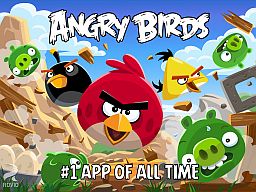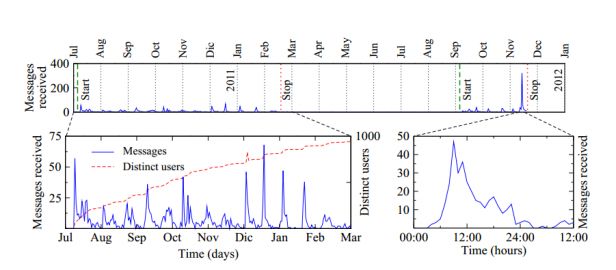Creating a game company for the long term is a difficult task, and you have to have a sustainable long-term strategic vision that you can execute properly. The games industry is considered to be a hit-driven business, which is a justifiable view — but that’s a very difficult strategy to execute for long. Too many new game companies, especially mobile game companies, seem to be relying on extremely rare events as a sustainable business strategy, and that’s very risky. They are hunting for whales and golden swans, relying on very rare events to succeed. Wiser companies are diversifying their offerings, depending on proven brands, and experimenting while remaining ready to take advantage of a rare event.
What are these creatures that companies wrongly pursue Whales are those customers who spend thousands or even tens of thousands of dollars in a game (the term is borrowed from the casino business). As in the casino business, these customers aren’t usually the majority of the revenue from a game (sometimes up to 10 percent or more, though) but they are highly profitable. These whales, though, can easily get bored or run out of money and suddenly stop playing your game at any moment.
The other rare creature being pursued by many companies is what I call a “golden swan.” What’s a golden swan That’s a rare, fortunate event that has major consequences, the positive version of a “black swan” event (the etymology is fascinating), a metaphor that “describes an event that comes as a surprise, has a major effect, and is often inappropriately rationalized after the fact with the benefit of hindsight,” according to Wikipedia. That describes many of the megahit games very well indeed — companies tend to think very highly of themselves after creating such a megahit, but history shows that caution (and conservative spending) is indicated.
Whales and golden swans share some important characteristics. They are incredibly rare, and incredibly valuable — and utterly unreliable when you’re planning a long-term strategy. Looking at how some companies have dealt with unusually successful games shows you the dangers of depending on rare events. Send whales a bottle of champagne, if you will, celebrate your golden swan when it arrives, but don’t construct your business strategy around them.

Brøderbund was one of the largest game companies in the late 1980’s and early 1990’s, based on the enormous success of titles like The Print Shop, Carmen Sandiego, and Myst. When the company went public in 1991, The Print Shop was 33 percent of its revenues and the Carmen Sandiego series was 26 percent. However, these titles were never the result of a planned strategy, but just things the company stumbled across. Brøderbund went from hit to hit, being lucky enough to find a new one each time the old one was fading…until one day there wasn’t a hit, and the company was sold (Ubisoft now owns most of the key brands).
Rovio had a great hit, Angry Birds, after 52 failures. Flush with success, the executives talked about becoming a company bigger than Disney, and a major creative powerhouse. Aside from extending the Angry Birds brand, Rovio has yet to create another major IP. That’s quite all right, though. It has a nice business, but it’s not keeping Disney executives up at night worrying. But it shows how a single golden swan may be very valuable, but it’s not going to build you an empire.
King Digital’s an interesting example. The company’s latest earnings report showed that Candy Crush Saga is slowing faster than expected, so the company missed its earnings projection — and the share price has dropped 25 percent as investors realize other games aren’t filling in the gap. King has been around for ten years, growing a reliable business based on creating lots of games and then promoting the best ones after extensive customer testing. When Candy Crush Saga became an enormous hit, King used its momentum to go public and bank a large amount of capital. Now, as the game begins to fade, King is using that money to diversify into different genres — while continuing to crank out new games at relatively low cost and risk.

Zynga is making the transformation from a hit-dependent company to one that’s a diversified, stable publisher. The company’s meteoric rise was entirely based on Facebook and its rapid success (and the early massive viral marketing Facebook enabled). But Zynga’s games didn’t exhibit much variation or innovation (basically, you had Zynga Poker and the “build and display” type games like FarmVille), and 95 percent of the company’s revenue came from Facebook. As Facebook started taking a revenue share, and cut back sharply on viral marketing, social gaming in general shrank — and Zynga suffered. The company had gone public at the height of the boom, though, and put over $1 billion in the bank. That nest egg is what Zynga is using to completely reinvent itself as a full-line publisher that’s diversified on platforms and genres. The latest quarterly earnings showed Zynga now makes the majority of its revenue from mobile games, and it’s grabbed some high-profile licenses while working on a variety of games. Zynga Poker and FarmVille are still more than half the company’s revenue, but that will likely change.
Among old-line publishers, Activision and Electronic Arts have been making the transition from being hit-focused and platform-focused to being brand-focused. FIFA is a brand that transcends platforms. As long as they continue to turn out new versions and find new ways to engage customers, FIFA will continue. EA is also busy pushing its Origin game distribution service, and inventing new ways to get people to play its games.
Activision has found that World of Warcraft is more than just a PC game; it’s a source of great brand equity that’s powering Hearthstone and Heroes of the Storm, and propelling the company’s growth on tablets. Activision took a chance by experimenting on Skylanders, and it’s paid off handsomely — and Activision is busy putting more effort into that brand and extending it onto tablets.
TakeTwo, on the other hand, still seems dependent on Grand Theft Auto to deliver a massive injection of cash… but that’s every five years. GTA Online may help them move beyond that. On the other hand, the 2K Sports brand seems to be cranking out a dependable stream of titles that sell well. The company is still heavily dependent on GTA revenue, but it’s placing major new bets like Evolve that could be very successful.
There are companies like Supercell or Machine Zone that are doing extremely well on one or two games (Supercell has three that are all doing well). Mojang has a great business with Minecraft, but hasn’t had any success in introducing other games yet. Riot Games has only one game, League of Legends, which is a tremendous success. Those are perfectly fine businesses, terrific in fact — but if any of them aspire to become a major publishing operation, they need to diversify and experiment. And if your business is depending entirely on one title or platform, what happens when that title or platform suddenly starts doing less well? The technology industry in general is littered with the corpses of companies that depended on one product that was supremely powerful, and yet one day failed. Look no further than Blackberry to see how fast fortunes can change.
Industry consultant Eric Goldberg wisely observed that taking no risks is the riskiest strategy of all. Hunting for whales and golden swans, and depending on them for your entire future, is a risky business indeed. Save the whales and preserve the golden swans, and look for a broader array of games to power your company into the future.




